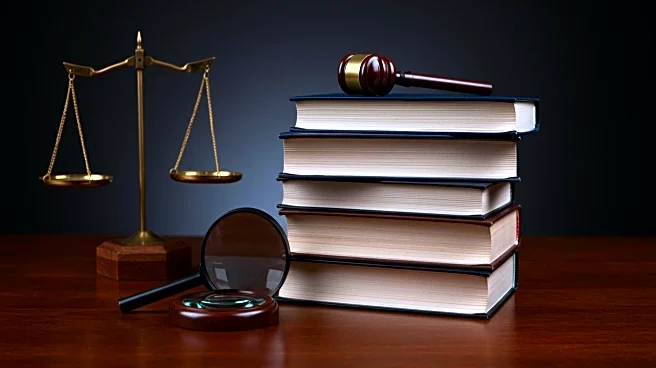What's Happening?
A class-action lawsuit against AI company Anthropic has gained momentum, with publishers and authors alleging the use of pirated books for training models. The Association of American Publishers (AAP) supports the lawsuit, which could expose Anthropic to significant copyright damages. The case focuses on the use of unlicensed copyrighted content from pirate sites, with potential damages estimated between $1 billion and $100 billion. The lawsuit highlights the ethical and legal challenges of using copyrighted material in AI development, drawing attention to the broader implications for the industry.
Why It's Important?
The Anthropic lawsuit represents a critical moment in addressing the use of copyrighted content in AI training, potentially setting a precedent for future cases. The outcome could impact the practices of AI companies, influencing how they source and utilize data. This case underscores the importance of copyright protection in the digital age, highlighting the need for ethical standards in AI development. The lawsuit may lead to increased scrutiny of AI companies' practices, prompting changes in industry regulations and policies to safeguard intellectual property rights.
What's Next?
The lawsuit is set to proceed with a trial date in December, requiring publishers and authors to prepare for potential outcomes. The case may lead to settlement discussions, influencing the future of copyright protection in AI development. As the industry navigates these challenges, stakeholders may advocate for clearer regulations and guidelines to ensure ethical practices. The lawsuit's progress will be closely monitored by industry leaders, potentially shaping the future of AI and copyright law.
Beyond the Headlines
The Anthropic lawsuit raises broader questions about the ethical use of data in AI development, prompting discussions on the balance between innovation and intellectual property rights. The case may influence public perception of AI companies, highlighting the need for transparency and accountability. As AI technology continues to evolve, the lawsuit underscores the importance of establishing ethical standards to protect creators' rights and foster responsible innovation.










